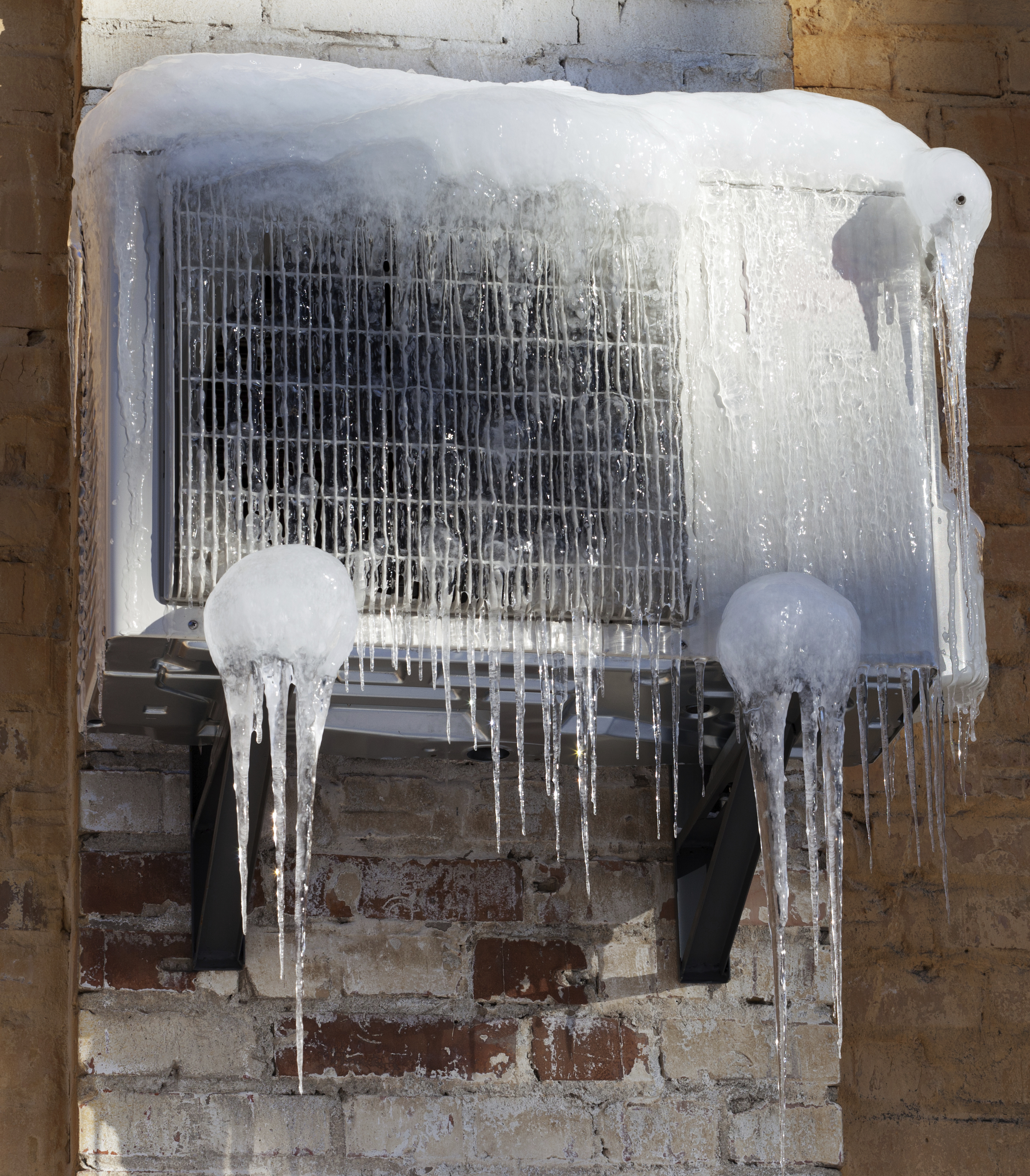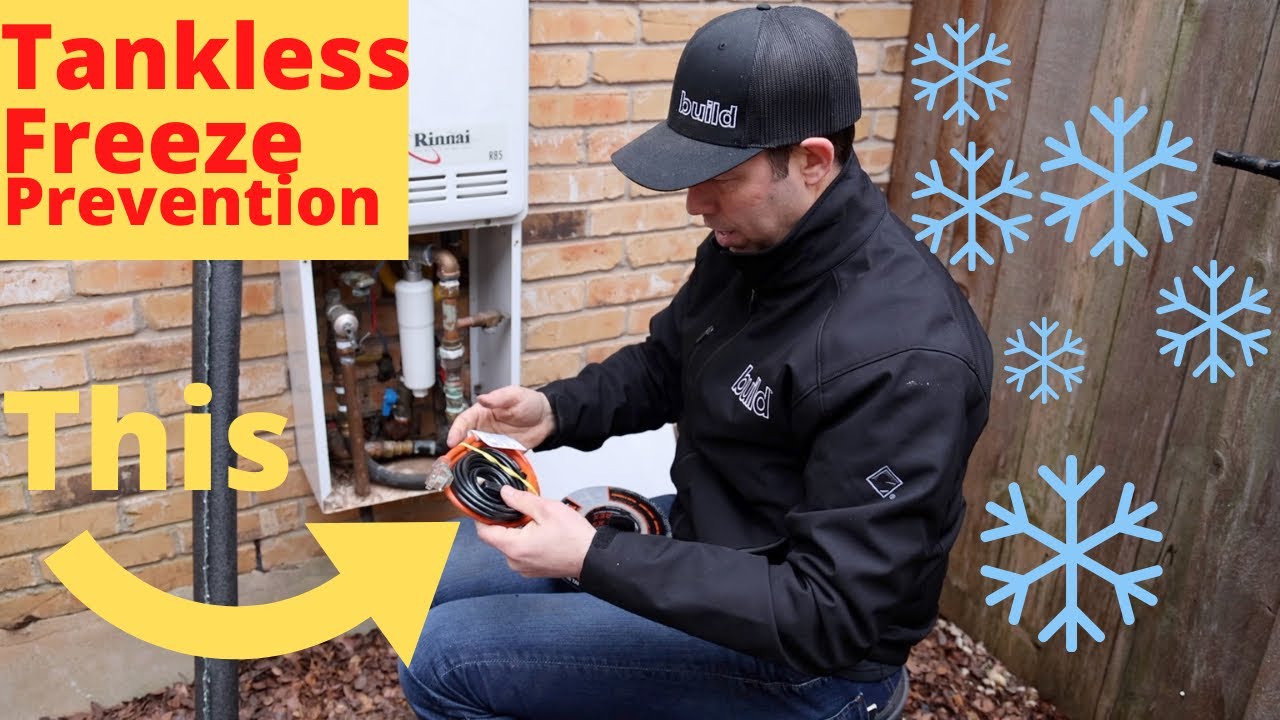If you have a tankless water heater, you need to take some extra steps to protect it from freezing. This is because the water in the tank can freeze and damage the unit. Here are some tips on how to protect your tankless water heater from freezing:
-Make sure the unit is properly insulated. This will help keep the water in the tank from freezing.
-Install a cold weather kit.
This will help keep the unit warm during cold weather.
-Keep the unit away from drafts. This will help prevent the unit from losing heat and causing the water to freeze.
-Monitor the temperature of the unit closely during cold weather. This will help you catch any problems before they cause major damage.
- Ensure that the tankless water heater is properly insulated
- This will help to protect it from both freezing temperatures and excessive heat
- Make sure that there is no water in the lines leading to and from the tankless water heater
- If there is water in these lines, it could freeze and cause damage to the unit
- Check the thermostat on the tankless water heater and make sure it is set at a temperature that will not allow for freezing
- The ideal setting is typically between 50-60 degrees Fahrenheit
- If you live in an area where temperatures regularly dip below freezing, it may be necessary to install a circulating pump on the tankless water heater unit
- This will keep the water moving and prevent it from sitting still long enough to freeze solid
Protect your tankless water heater from freezing
At What Temp Does a Tankless Water Heater Freeze?
Most tankless water heaters are designed to withstand freezing temperatures, but if the unit is not properly maintained, it can be susceptible to freezing. If your tankless water heater does freeze, it is important to thaw it out as soon as possible to prevent damage.
To thaw a frozen tankless water heater, first turn off the power to the unit.
Then, remove any ice or snow that has accumulated on the unit. Next, use a hair dryer or space heater to slowly and evenly thaw the unit. Once thawed, flush the unit with fresh water and then restart the power.
If you have any questions about your specific tankless water heater model and how to prevent or fix a freeze, consult your owner’s manual or contact the manufacturer directly.
Do Outdoor Tankless Water Heaters Need to Be Covered?
Most people believe that outdoor tankless water heaters need to be covered in order to protect them from the elements. However, this is not necessarily true. While it is important to keep your tankless water heater free of debris and away from direct sunlight, you do not necessarily need to cover it.
If you live in an area with high winds, you may want to consider securing your tankless water heater with straps or chains to prevent it from being blown over.
How Do I Prepare My Tankless Water Heater for Winter?
If you live in an area where the winters are cold, you’ll want to take some steps to prepare your tankless water heater for the winter. Here are a few tips:
1. Insulate Your Pipes
One of the best ways to prep your tankless water heater for winter is to insulate your pipes. This will help keep the water in your pipes from freezing, which can damage your plumbing and lead to costly repairs. You can find pipe insulation at most hardware stores.
2. Drain and Flush Your Water Heater Regularly
Another important tip is to drain and flush your water heater on a regular basis – at least once per year. This will help remove any sediment that has built up in the unit, which can cause problems if it freezes over the winter months.
Simply follow the instructions in your owner’s manual to properly drain and flush your unit.
3. Keep It Covered When Not In Use
When you’re not using your tankless water heater, be sure to keep it covered with a heavy blanket or tarpaulin.
This will protect it from the elements and help prevent any damage that could occur if it were to freeze over during the winter months.
Do Tankless Water Heaters Freeze in Cold Weather?
If you live in a cold climate, you may be wondering if a tankless water heater can freeze. The short answer is yes, tankless water heaters can freeze in cold weather. However, there are some things you can do to prevent this from happening.
First, make sure your tankless water heater is properly insulated. This will help keep the unit warm and prevent it from freezing. You can find insulation kits at most hardware stores.
Second, keep the unit turned off when it’s not in use. This will help conserve energy and prevent the unit from freezing while it’s not being used.
Third, if you know that a cold snap is coming, take steps to protect your tankless water heater ahead of time.
For example, you could drain the unit before the cold weather hits to prevent any water inside from freezing and damaging the unit. Or, you could disconnect the power supply to the unit so that it doesn’t turn on accidentally and freeze itself solid.
Taking these steps will help ensure that your tankless water heater doesn’t freeze in cold weather.

Credit: www.countrysideph.com
How to Protect an Outdoor Tankless Water Heater
If you have an outdoor tankless water heater, there are a few things you can do to protect it from the elements. First, make sure that the unit is properly installed and secured. This will help to prevent it from being blown over by strong winds.
Second, keep the area around the unit clear of debris and vegetation. This will help to prevent corrosion and other damage caused by exposure to the elements. Finally, consider investing in a cover for your outdoor tankless water heater.
This will provide an extra layer of protection against the elements and help to prolong the life of your unit.
How to Insulate Tankless Water Heater
If your home is not properly insulated, your tankless water heater will have to work harder to heat the water – and that can lead to higher energy bills. Here are some tips on how to insulate your tankless water heater:
1. Make sure the unit is installed in a well-insulated space.
If it’s installed in an uninsulated garage or shed, for example, add insulation around it to help keep the heat in.
2. Use weatherstripping and caulk to seal any gaps or cracks around the unit. This will help prevent hot air from escaping and cold air from getting in.
3. Add a layer of insulation around the unit itself. You can find special blankets made specifically for this purpose, or you can use foam pipe insulation. Just make sure there’s no gap between the blanket and the unit so that heat doesn’t escape.
Following these tips will help you keep your tankless water heater running efficiently – and save you money on your energy bills!
Rheem Tankless Water Heater Freeze Protection
Rheem tankless water heaters are designed to provide hot water on demand, without the need for a storage tank. This can save space and energy costs. However, in cold weather, it’s important to take steps to protect your Rheem tankless water heater from freezing.
One way to do this is to insulate the exposed pipes leading to and from the unit. You can also use a RV antifreeze solution in the lines, which will help prevent freezing and corrosion. Additionally, make sure that the area around your Rheem tankless water heater is well-ventilated so that cold air can’t get trapped around the unit and cause it to freeze.
If you follow these tips, you’ll help ensure that your Rheem tankless water heater will be able to provide hot water all winter long – even in the coldest weather!
Conclusion
If you live in an area with cold winters, it’s important to take steps to protect your tankless water heater from freezing. Tankless water heaters are susceptible to freezing damage if the temperature outside drops below freezing and there is no insulation around the unit. Here are some tips for protecting your tankless water heater from freezing:
1. Add insulation around the unit. This will help keep the unit warm and prevent freezing damage.
2. Use a water heater blanket or wrap.
These are specifically designed to insulate tankless water heaters and can be found at most hardware stores.
3. Keep the unit indoors if possible. If you have an outdoor unit, try to keep it in a garage or shed that is well-insulated against the cold weather.
4. Check the manufacturer’s recommendations for winterizing your specific model of tankless water heater. Some models may require special procedures for winter protection, so it’s important to follow those instructions carefully.

